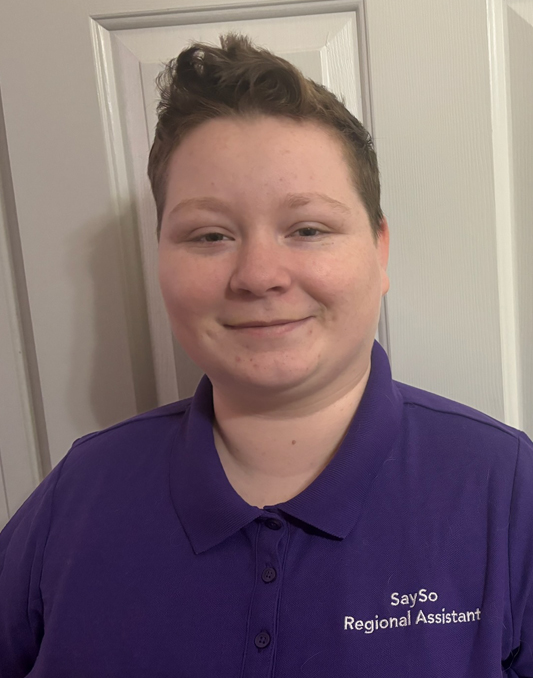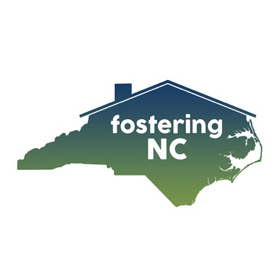
Shanita Dildy-Goings
I was born into care, adopted twice, had my name changed three times, graduated high school, and decided to do it all over again for four more years. I had my transition into adulthood while in my adopted parent’s home. Being an adult out in the world for the first time means making your own choices and mistakes. I flunked out my first year due to attendance–surprised everyone who knew me and myself. I moved back in with my parents, moved right back out a short while later. I’ve been homeless, met people and lost them, been ignorant, hungry, broke, and broken. My transition into adulthood may not have been like yours but it probably sounds familiar. The adversities I had to overcome and am still overcoming; the triumphs I have already celebrated and will celebrate in the future. We share these stories and walk coinciding paths.
Resiliency is not new to us because growing up in care will force you to be resilient. I’ve had people tell me that they are amazed at my ability to spring back from difficulties. I don’t always feel so flexible though. There are days I am so rigid with indecision, stiff with existential dread and self-loathing I can’t accomplish anything. It is in these moments we need to look outward for help with getting connected to resources, support systems, and networking, especially as we transition into adulthood.
This is not a scare tactic–though it can be scary–it is just my experience. In recent years the age cap for a lot of resources and opportunities have been raised helping those who are still eligible go to school, get housing, connect to health services, and more. If it wasn’t for my support group and the connections I made with the people around me I would be worse off. If there is anything I can tell youth growing up in care or about to transition, it is to network! Show up to events like SaySo Saturday. Try not to burn bridges unnecessarily. Look into the many organizations out there that fight for us. Learn about college, sexual health, and shadow professionals. Have you ever been to camp? Have you ever needed a suitcase? Or wondered what a real world game of LIFE looks like? Take full advantage of everything while you can because once your options become limited you can use both your resilience and relationships to overcome adversity and transition in a way that allows you to take the less turbulent path, not the perfect one.
Today, I’m a first-generation graduate, entrepreneur, SaySo alumni, an artist, and writer. Transitioning into adulthood is not impossible but I also won’t tell you it is without its trials. Luckily, life has already prepared you to endure and persevere in the face of hardship. When I reflect on what I have accomplished, despite the stutter-steps and stumbles, I am reminded of the “rose emerging from concrete,” a phrase coined and used by many to embody the term “resilience.” This is what has worked for me. From growing up in care to transitioning out and now about to be “13 going on 30.” I know our roads won’t be similar but hopefully you can find some familiarity in my story. Break through that concrete stronger and more majestic than anyone.

Preston Holmes
How I stayed strong through foster care and who was my support system?
I stayed strong by listening to music and keeping my head up looking for the future. I tried to involve myself in many activities. However, that didn’t always help when those activities did not help me. I would try and write about everything going on in hopes one day I could look back and smile telling myself I made it, which I did.
My coping mechanisms and supports when times got rough?
My biggest coping mechanism is listening to music and writing down my thoughts and feelings. I also have hobbies that I enjoy such as helping people who need it. I enjoy playing games and learning new ways to earn money, save money, going for drives, and so much more. My biggest supports are my 18-21 Program Social Worker, my family, and my SaySo family. I don’t always use my support system but I know they are always there when I need them and I could not be more grateful for that.
What words of encouragement do I have for youth in care?
Never give up. Always keep your head up. There is always light at the end of the tunnel. Trust me because I had a very bad experience in care but i made it out and now my life is going amazing. Shoot for the stars and you’ll land among the moon. Keep grinding and smiling and remember all the rainy days you are having now does not compare to the joy that is coming to you. Most importantly, know you got this. Always keep your head up because there is always much more to life.
What advice do I have for social workers who work with teens?
Remember to be friendly and think about what the youth is going through. When a young person is taken from their family it can be very difficult for them to adapt. Be patient and listen because you never know what may be going through their mind. Reflect on what is said to you and take it all with a grain of salt. Sometimes with great sadness comes anger. My biggest advice would be to act as that youth’s family. They need all the help they can get. Don’t try to replace their biological family and make sure they’re comfortable. Spend time with the youth, take them places, and make it as normal as possible. Let them have friends and let them talk on their phones if it isn’t causing issues. Most times a child in foster care feels like they’re in prison. At the end of the day, it is about the youth and nothing more and I think a lot of social workers need to remember that.

Course on Fostering NC: Guardianship, Pathway to Permanence
This course provides North Carolina resource parents information about guardianship, which is a route to permanence for some youth in foster care.


